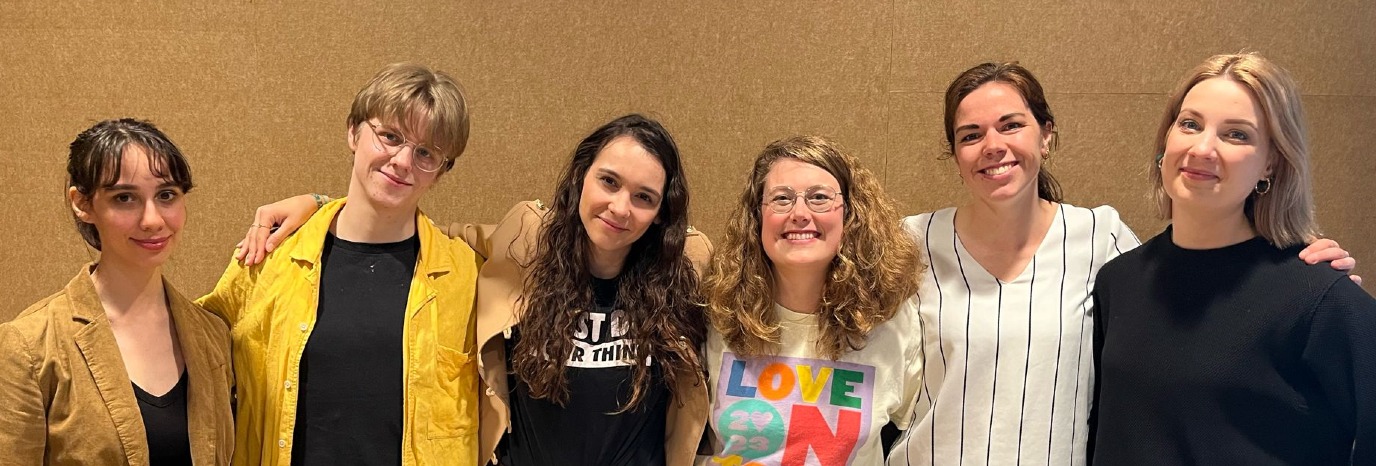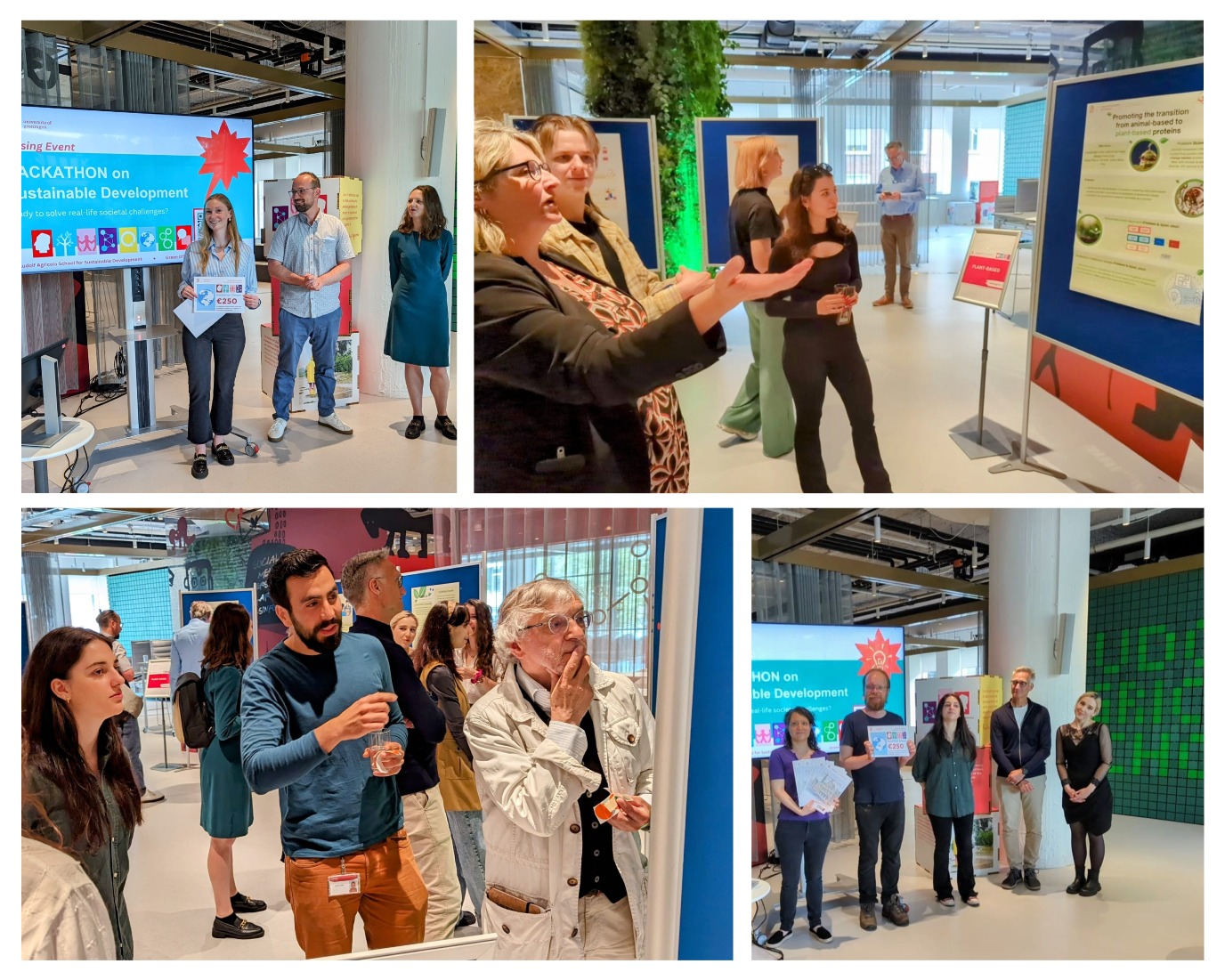Food Transition in Action: Participants of the Sustainability Hackathon at Agricola School Conduct Research for the Municipality of Groningen

The Rudolf Agricola School's first Hackathon has just finished. In four groups they worked on four different challenges. One of the challenges was brought in by the municipality of Groningen: ‘How can we encourage students to eat more plant-based food?’ Shortly before the final presentation, we spoke to Hilde Lavell, Ivet Panjer of the Groningen municipality, and Emma Zaal, mentor of the students.
Read our interview here with Chris Kobelke, who participated in this challenge as a student within the Hackathon.
The topic of the Hackathon was, of course, 'sustainable development'. One of the participant groups dedicated themselves to the challenge of the protein transition. ‘That is a challenge introduced by the Municipality of Groningen,’ says Hilde Lavell. She is a policy officer for the Municipality of Groningen and works with her colleague Ivet on food and protein transition in the municipality. ‘One of the questions we have as a municipality is, “How can we encourage students to eat more plant-based?”’ she says. Her colleague Ivet Panjer adds, ‘For the municipality, we are working on a roadmap with goals for 2030 and 2050 on three themes: food production, food consumption, and food environment.’
Hilde: ‘We are already doing a lot, for example, with cooking lessons for children in the northern city districts. We also wonder how to create an environment where people naturally start living healthier, for example, because there is little advertising and fast food nearby. We are also considering cooperation with local farmers. But we had not yet focused on students as a group, even though they are obviously a large and important group in a city like ours. Now, with this hackathon, students are working on the issue, and they are right in the middle of the student world, so they know what they are talking about.’
Emma Zaal is the mentor of the hackathon that deals with food. This is now the final week. The hackathon participants have conducted research among students and made contact with various organizations for potential future collaborations. The research they are conducting is aimed at identifying the main predictors of behavior. They are trying to find out which beliefs should be targeted to get students to eat more plant-based. The actual outcomes of the hackathon will be presented this Thursday (May 31) during a 'science fair'.
Hilde: ‘For the municipality, there will be a plan that we might actually implement. The participants have already suggested, for instance, that we could also offer cooking lessons to students. We could do this in community centers. By taking joint lessons, valuable contacts can also be made between students and other neighborhood residents. Other options include campaigns during Keiweek and various festivals.’
Emma: ‘We meet twice a week with our group. We then look at how far we have come, and I guide the participants in their research. We currently have five participants, and that is just the right number; it is a creative process, and we are making quick progress.’
Ivet: ‘As the client for this Hackathon challenge, I can say that we as a municipality are already very satisfied. Really fun and useful things are going to come out of this.’

| Last modified: | 04 June 2024 3.05 p.m. |
More news
-
24 March 2025
UG 28th in World's Most International Universities 2025 rankings
The University of Groningen has been ranked 28th in the World's Most International Universities 2025 by Times Higher Education. With this, the UG leaves behind institutions such as MIT and Harvard. The 28th place marks an increase of five places: in...
-
05 March 2025
Women in Science
The UG celebrates International Women’s Day with a special photo series: Women in Science.
-
16 December 2024
Jouke de Vries: ‘The University will have to be flexible’
2024 was a festive year for the University of Groningen. In this podcast, Jouke de Vries, the chair of the Executive Board, looks back.

